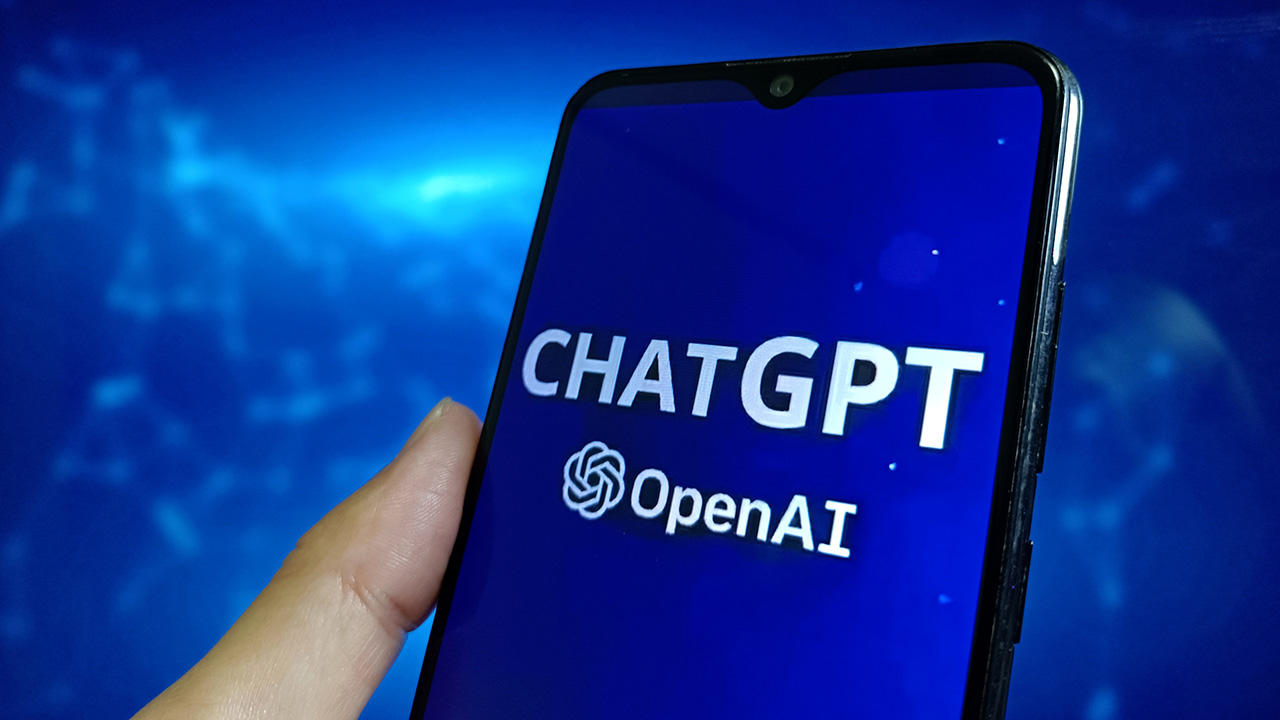OpenAI Facing FTC Investigation: Concerns Over ChatGPT's Data Practices And AI Safety

Table of Contents
- Data Privacy Violations and ChatGPT's Data Collection
- Unclear Consent and Data Usage
- Potential for Data Breaches and Security Risks
- AI Safety and Algorithmic Bias in ChatGPT
- Concerns about Misinformation and Harmful Content
- Ethical Implications of Large Language Models (LLMs)
- The FTC's Investigative Powers and Potential Outcomes
- Enforcement Actions and Penalties
- Conclusion
OpenAI, the innovative company behind the wildly popular AI chatbot ChatGPT, is currently facing intense scrutiny from the Federal Trade Commission (FTC). This investigation focuses on serious concerns regarding ChatGPT's data handling practices and potential risks to consumer safety and data privacy. The implications of this OpenAI FTC investigation are far-reaching, impacting not only OpenAI but also the broader field of artificial intelligence development and the crucial balance between innovation and responsible technology deployment. This article will delve into the specifics of the FTC's investigation, exploring the key issues that have brought OpenAI under this regulatory microscope.
Data Privacy Violations and ChatGPT's Data Collection
The FTC's investigation into OpenAI centers heavily on allegations of inadequate data privacy practices. The sheer scale of data collected and used to train ChatGPT raises significant concerns about compliance with existing data protection laws.
Unclear Consent and Data Usage
A primary focus of the investigation is whether OpenAI obtained truly informed consent from users regarding the collection and use of their data. ChatGPT's training data encompasses a vast amount of personal information scraped from the internet, raising serious questions about compliance with regulations like the GDPR (General Data Protection Regulation) and the CCPA (California Consumer Privacy Act).
- Lack of transparency in data collection policies: Critics argue that OpenAI's data policies lack sufficient transparency, making it difficult for users to understand how their data is being collected, used, and protected.
- Potential violations of GDPR and CCPA regulations: The breadth of data collected and the lack of clear consent mechanisms raise concerns about potential violations of these crucial data protection laws. The FTC will be examining whether OpenAI met the necessary standards for lawful data processing.
- Concerns about the use of sensitive personal information: The training data may include sensitive personal information, such as health records or financial details, raising serious ethical and legal concerns.
- Difficulty for users to control or delete their data: Users currently have limited control over their data, including the ability to delete or modify information used in ChatGPT's training.
Potential for Data Breaches and Security Risks
The massive datasets used to train ChatGPT represent a significant security vulnerability. A data breach could expose sensitive personal information on a massive scale, leading to identity theft, financial fraud, or other serious harms.
- Inadequate security measures to protect user data: The FTC is investigating whether OpenAI has implemented adequate security measures to protect the vast quantities of user data involved in training and operating ChatGPT.
- Potential for malicious actors to exploit vulnerabilities: The sheer size and complexity of the datasets make them attractive targets for malicious actors seeking to exploit vulnerabilities.
- The lack of robust mechanisms for data anonymization and de-identification: OpenAI's methods for anonymizing and de-identifying data within its massive datasets are also under scrutiny.
AI Safety and Algorithmic Bias in ChatGPT
Beyond data privacy, the FTC's investigation also examines the safety and ethical implications of ChatGPT itself. The potential for misuse and the generation of harmful content are key concerns.
Concerns about Misinformation and Harmful Content
ChatGPT's ability to generate realistic, yet potentially false, information raises significant concerns about the spread of misinformation and propaganda. The FTC is investigating whether OpenAI has put in place sufficient safeguards to mitigate these risks.
- Generation of biased or discriminatory content: Concerns exist about the potential for ChatGPT to generate biased or discriminatory content, reflecting biases present in its training data.
- Potential for the spread of misinformation and fake news: The ease with which ChatGPT can generate convincing but false information poses a serious threat to the spread of accurate information.
- Lack of mechanisms to detect and prevent the generation of harmful content: The investigation scrutinizes the effectiveness of OpenAI's content moderation systems and their ability to prevent the generation and dissemination of harmful content.
- Difficulty in moderating user interactions and generated outputs: The dynamic nature of user interactions with ChatGPT makes real-time moderation challenging.
Ethical Implications of Large Language Models (LLMs)
The investigation delves into the broader ethical implications of deploying powerful LLMs like ChatGPT without adequate consideration of potential harms.
- Lack of accountability for the outputs generated by ChatGPT: Determining accountability when ChatGPT generates harmful or inaccurate information is a critical challenge.
- Potential for misuse of the technology for malicious purposes: The technology's potential for misuse in activities like phishing scams, impersonation, or the creation of deepfakes is a significant concern.
- The need for robust ethical guidelines for the development and deployment of LLMs: The investigation highlights the urgent need for clear ethical guidelines and best practices in the development and deployment of LLMs.
- Concerns regarding the potential for job displacement due to automation: The potential impact of LLMs on employment and the workforce is also a relevant consideration.
The FTC's Investigative Powers and Potential Outcomes
The FTC possesses significant authority to investigate unfair or deceptive business practices. The outcome of this OpenAI FTC investigation could have substantial consequences.
Enforcement Actions and Penalties
Depending on the findings, OpenAI could face a range of enforcement actions and penalties.
- Potential for hefty financial penalties: Significant fines are a possibility if the FTC finds evidence of violations.
- Mandatory changes to data collection and usage policies: OpenAI may be required to overhaul its data handling practices and implement stricter policies.
- Requirements for enhanced security measures and data protection: The FTC could mandate improved security measures to protect user data.
- Potential for restrictions on the use of ChatGPT: In extreme cases, restrictions on the use of ChatGPT or its features could be imposed.
Conclusion
The FTC's investigation into OpenAI and ChatGPT serves as a critical wake-up call regarding the responsible development and deployment of powerful AI technologies. The potential risks to consumer privacy and safety are substantial, underscoring the urgent need for improved data handling practices, robust safety protocols, and increased transparency. The outcome of this OpenAI FTC investigation will significantly influence the future of AI development and set a precedent for the responsible use of Large Language Models. OpenAI and the broader AI community must prioritize data privacy and AI safety, implementing stringent safeguards to mitigate risks and foster public trust. The future of AI hinges on responsible innovation; failure to address these concerns will have far-reaching and potentially devastating consequences. The call to action is clear: prioritize responsible AI safety and data privacy in all aspects of AI development.

 Tech Billionaires 194 Billion Loss The Cost Of Supporting Trump
Tech Billionaires 194 Billion Loss The Cost Of Supporting Trump
 Dijon Agression Sauvage Au Lac Kir Trois Hommes Victimes
Dijon Agression Sauvage Au Lac Kir Trois Hommes Victimes
 White House Nomination Controversy Influencer Replaces Nominee For Surgeon General
White House Nomination Controversy Influencer Replaces Nominee For Surgeon General
 Nuclear Sharing In Europe A French Ministers Perspective
Nuclear Sharing In Europe A French Ministers Perspective
 The Trump Presidency And The Billionaire Losses Musk Bezos And Zuckerbergs Financial Impact
The Trump Presidency And The Billionaire Losses Musk Bezos And Zuckerbergs Financial Impact
